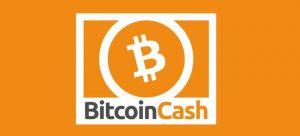BCH
Bitcoin Cash
Bitcoin Cash (BCH) is arguably the most popular hard fork of Bitcoin, flying the flag of being a “truer” Bitcoin than Bitcoin itself. It aims to become genuine digital money by focusing on faster transactions, lower fees and better scalability.
| Market Cap | Volume 24h | Circulating Supply | Maximum Supply |
|---|---|---|---|
| $1,922,211,117 | $212,744,923.52 | 19111462.0 BCH | 21000000.0 BCH |

What Is Bitcoin Cash?
Bitcoin Cash, also known as Bcash, operates as a payment network and a cryptocurrency whose main transaction unit is the BCH token. It came into existence in August 2017, following the long-standing disagreement among the Bitcoin community members on how to introduce changes to the original technology in order to speed up its transactions and bring down their cost in fees. In addition, both the miners and developers in the BCH faction expressed concerns regarding the Bitcoin’s true potential to scale effectively with an increasing number of its users.
The inability to resolve these issues created bitter rivalry among two factions: one in favor of intervening in the original Bitcoin code to increase the block size limit and make it easier to handle an increasing number of transactions, and the other who wanted to keep things as they were back then. The split caused the hard fork and the “reformist” faction went on to create Bitcoin Cash as a peer-to-peer (P2P) electronic cash solution designed to make up for the supposed wrongs of the parent Bitcoin platform.
What Is Bitcoin Cash Trying to Achieve?
So, instead of trying to reinvent the wheel or resolve a particular issue, the Bitcoin cash platform sticks to the original goals of the Bitcoin platform, as reflected in the lack of a proper white paper dedicated to it. Instead of it, Bitcoin Cash will present the user with the Satoshi Nakamoto’s original work and its objectives, adding its own technological twist to some of these goals.
For starters, Bitcoin Cash sees the attainment of the “electronic cash” goal as inseparable from improving transaction speeds. According to its proponents, the creation of genuine “digital money” justifies any technological intervention in the Bitcoin code to achieve the goal of making it an everyday payment tool, including the one suitable for paying for a cup of coffee. This meant that transaction time with Bitcoin Cash had to be shortened for the transfer of value compared to what is found on the Bitcoin’s chain. This points to the shift in focus regarding the purpose of BCH compared to BTC, with the Bitcoin Cash faction favoring the use of their crypto as a means of everyday exchange as opposed to it being mainly a platform for storing value.
So, considering the Bitcoin’s then transaction speed of seven operations per second, the Bitcoin Cash team went on to increase the Bitcoin’s original block size limit of 1MB to 8MB in order to supposedly speed up the verification process and provide adjustable difficulty levels. Increasing this limit was supposed to allow Bitcoin Cash to offer the performance levels approximating two million transactions processed per day.
All of this was supposed to offer higher transactions speeds and make the platform less dependent on miners than it is the case with Bitcoin. The change to the code should also allow for easier transfer among the crypto exchanges.

How Does Bitcoin Cash Approach Scalability?
The Bitcoin Cash crowd sees the Bitcoin’s scalability efforts as lacking and ultimately undermining its promise of greater decentralization. Splitting from the Bitcoin did not mean intervening in its block size limits only, with the Bitcoin Cash supporters opting to get rid of the proposed SegWit2x fork which, they felt, failed to truly address the scalability issue with Bitcoin.
This protocol was initially presented as a compromise solution built upon the existing Segregated Witness (SegWit) technology which allowed for the storage of some data outside of the blockchain with the goal to free up the platform’s storage capacity, improve the confirmation times and support handling of more transactions. Once the future BCH supporters saw that block size limits were not increased, the BCH crowd rejected the upgrade and went on to eventually upgrade their size to 32MB back in mid-2018.
Also, feeling that the process of introducing SegWit was not transparent enough, the Bitcoin Cash crowd promised to deliver a decentralized platform with no central authorities involved in its operation or the processing of the community’s feedback.
Is Bitcoin Cash More of a Common Man’s Platform?
Bitcoin Cash bills itself as a more accessible platform compared to its older rival, based on the feeling of its proponents that the Bitcoin’s environment was becoming too prohibitive for new entries at some point.
Nowadays, Bitcoin Cash prides itself on allowing its users to send money at what they describe as more acceptable transaction fees compared to Bitcoin and some other cryptos, based on the fact that BCH wants to “subsidize” transactions with its use of large blocks. At the same time, lower fees should help both merchants and regular users promote the global adoption of BCH in general.
Finally, the increased block size should theoretically allow for having higher transactions per block, thus benefiting the miners by giving them more fees for mining a block.
Did Bitcoin Cash Introduce Some New Tech?
Bitcoin Cash introduced Replay and Wipeout Protection technologies to protect the platform from replay attacks. Replay protection implemented by Bitcoin Cash should be helpful in situations when the users have coins on multiple chains after a fork. A replay attack happens when a user wants to send coins on one chain while their actions are mirrored on the other chain. The BCH’s solution allows for the coexistence of two chains while minimizing user disruption.
In addition to this, Bitcoin Cash introduced a new transaction type with features such as input value signing and prevention of the quadratic hashing problem.
Availability and Issues Faced by BCH
All Bitcoin holders as of block 478558 were made owners of BCH. Those who opted for Bitcoin Cash had their bitcoins automatically turned into BCH, which was rather easy as their technologies are rather similar. The same goes for the number of coins in circulation which Bitcoin Cash shares with its progenitor – 21 million BCH, of which more than 17 million coins are in circulating supply as of April 2019. At the same time, the currency’s market cap stood at USD 5.1 billion at the same time, with historical high achieved in December 2017 when its value reached USD 59 billion.
Soon after its introduction, Bitcoin Cash became one of the top ten coins by market capitalization, ranking at number 4 as of April 2019. Buying BCH on cryptocurrency exchanges is a viable option as the currency enjoys fairly strong support on the platforms such as Bittrex, Coinbase and others.
Once acquired, Bitcoin Cash can be stored in a variety of wallets, including mobile, desktop, hardware and paper wallets. Most wallets are free to download and support sending, receiving, and storing funds, transaction insights and other functions.
Yet, this success came against a range of problems which the Bitcoin Cash initially faced, including:
- Being confused with Bitcoin since it shared a similar logo and had its origins in the same community. The term “bcash” which is sometimes used for it does not help its cause either.
- Being sometimes described as a “low-end” variant of the currency it forked from, particularly by the less experienced users. Yet, the Bitcoin Cash user community tries to help by pushing initiatives and lists of businesses that actually accept Bitcoin Cash as a means of payment.
- Centralization with Bitcoin Cash is seen as a more prominent issue compared to Bitcoin. Some commentators go as far as calling Bitcoin Cash “fiat money” based on its association with Bitmain which is described as the “central bank” of BCH.
- Finally, there is an issue of BCH mining. Investments in mining rigs can go just as high as in the case of Bitcoin which still promises to deliver higher rate of return on investments.

BCH Community Splits and Forks
Just when it seemed that Bitcoin Cash would manage to stand up to these challenges, the platform came face to face with another issue: conflicting attitudes about its block sizes among the members of its community. Eventually, these cracks turned to gulches and the community split into two main camps on November 15 2018.
Those who opted to protect Bitcoin Cash from implementing overly radical changes with block sizes represented the Bitcoin ABC faction, with ABC standing for “Adjustable Blocksize Cap”. They were led by Roger Ver and mining hardware manufacturer Bitmain.
Bitcoin SV (BSV, with “SV” standing for “Satoshi’s Vision”) is the other major fork of Bitcoin Cash which established itself as a standalone cryptocurrency with the mission to uphold what its creators claim to be the original vision of the Bitcoin’s founder. The coin was developed by the blockchain development firm nChain, with the support from one Craig “Faketoshi” Wright. His faction supported forking from the Bitcoin Cash in order to allow for increasing the BCH block size from the current 32 MB to 120 MB. Despite the fact that BitcoinSV lost the BCH ticker, the currency managed to achieve some success in late 2018, riding on its promise to substitute Bitcoin Cash’s native application ecosystem in the long run.
On April 15 2019, Binance announced plans for the delisting of Bitcoin SV on April 22 2019, followed by a similar announcement made by Kraken on April 16.
Plans for the Future
Scaling, usability, extensibility and security are the four main points in which the Bitcoin Cash community and developers see some room for improvement and focus their improvement efforts on:
- One of the goals is to enable Bitcoin Cash to scale from ~100 Tx/s to more than 5,000,000 Tx/s. Changes to the protocol are planned to support mass parallelization and a higher level of transaction processing performance.
- Payment with BCH should be made both instant and secure, with the goal of securing transaction within three seconds.
- Bitcoin Cash also plans to implement an extensible protocol which would make the future upgrades less disruptive to its daily operations.
- There are some proposals to make the Bitcoin Cash more secure by pairing it with the Avalanche Protocol.
